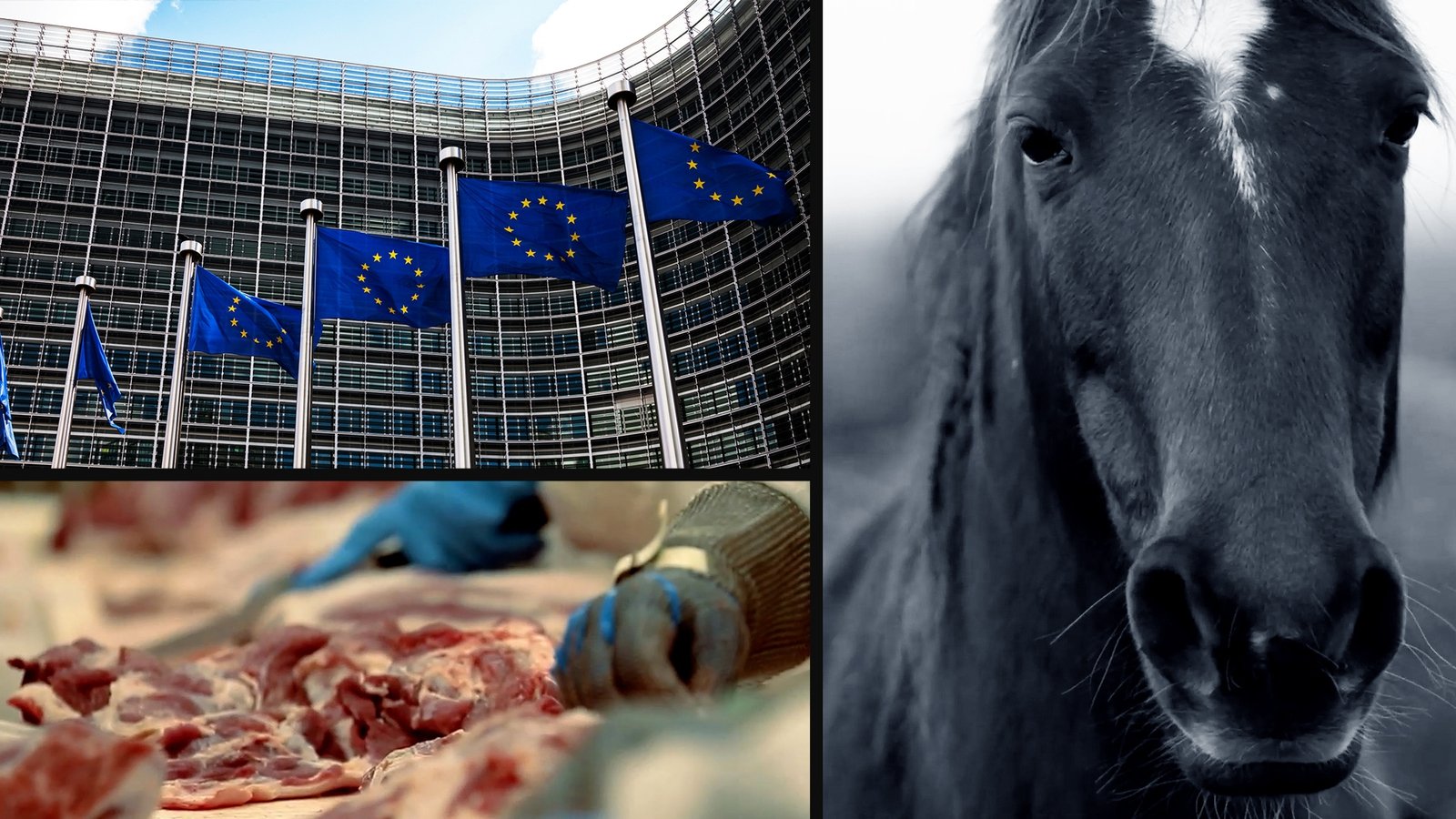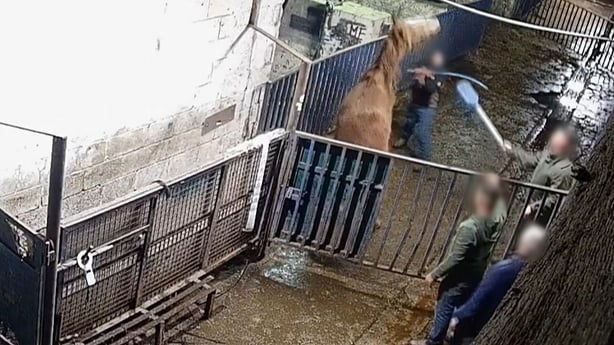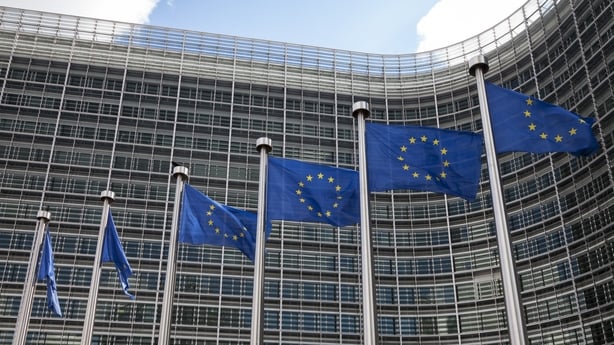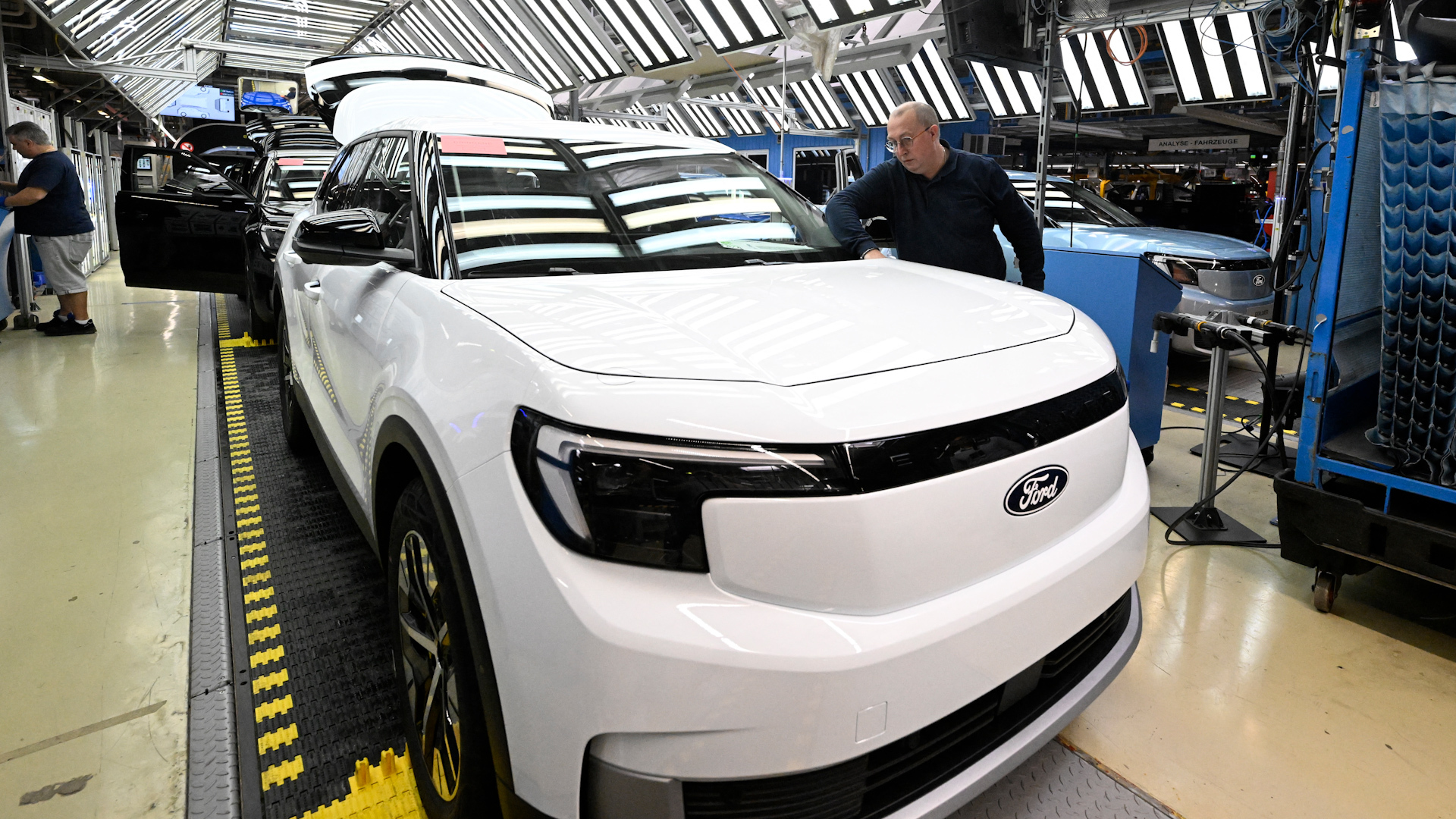Horse Racing
RTÉ horses exposé triggers Europe-wide food safety investigations

Investigations are under way across Europe into suspicions of illegal slaughtering and traceability defects among hundreds of horses killed for human consumption, on foot of evidence uncovered as part of a major investigation by RTÉ.
The food fraud division at the European Commission issued the alerts for horses slaughtered in Ireland, Italy and Spain because there was evidence animals should have been removed from the food chain – or they had been declared dead a considerable time – before they were supposed to have been slaughtered.
The resulting non-compliance notices were issued in recent weeks through the Commission’s agri-food network, which shares information among EU member states on potential fraud cases.
On Wednesday night, RTÉ broadcast the findings of its investigation, which involved compiling and comparing a large number of datasets held by countries and bodies across Europe.
Watch: ‘Horses: Making a Killing’ from RTÉ Investigates
Included in the documentary was evidence of illegal activities to launder the identities of horses and compromise the integrity of the human food chain at a site connected to Ireland’s only active abattoir for horses, operated by Shannonside Foods in Straffan, Co Kildare.
The report also showed undercover footage in which horses were re-microchipped by Shannonside Foods staff prior to being sent for slaughter.
Significant issues around how horses are processed for human consumption through slaughterhouses in mainland Europe were also detailed.
European Commission spokesperson on Food Safety Stefan De Keersmaecker told RTÉ Investigates “there is absolute zero tolerance for any kind of fraud, whether it’s in the context of food safety or any other European policy fields. Fraud? No, it’s no go.”
“So as soon as fraud cases are identified, all kinds of triggers go off. The Commission intervenes, the different member states intervene, and it’s followed through,” he said.
“I can only say with very strong reassurance that when such issues are identified, when lists of cases like this are handed over to the national level, to the Commission, these are cases that are taken extremely seriously. Extremely seriously.”
In the period from 1 January 2023 to 1 March 2024 identification records showed that 20 horses had been declared unfit for human consumption in the UK or France, but were later slaughtered at the facility in Kildare run by Shannonside Foods Ltd.
Ingrid Kragel, director of Food Watch in France, said the revelations raised concerns about where the meat ended up.
“Even if Irish people don’t eat horse meat, this meat is exported and it goes into one country, it might be then re-exported, it might travel also, it might be used in processed food, it might go into supermarket restaurants, we never know.”
“We don’t know. And this opacity is really a problem when there is lack of transparency on these practises, there is a lack of trust, and trust is fundamental,” she said.
In a statement Shannonside Foods Ltd said the Animal Identification Movement System was managed by the Department of Agriculture and all equines presented for slaughter in Straffan are checked against that database.
The Department of Agriculture said it was unable to comment on the 20 specific horses but said the allegations “if true, would constitute clear breaches of the EU Animal Health Law.”
The material compiled during research by RTÉ Investigates raised issues beyond Ireland and highlighted significant concerns related to other EU member states.
In April, after it received material from RTÉ Investigates, the European Commission issued non-compliance notices in respect of 332 horses slaughtered in Ireland, Italy, and Spain. The notices identified the issue as “illegal slaughtering, traceability defects.”
Read more: Food safety concerns as horses seen re-microchipped pre-slaughter
RTÉ Investigates identified numerous instances where microchip records indicated that horses were slaughtered even though they had already been declared unfit for human consumption somewhere in Europe.
In the same bulletin the commission issued another non-compliance notice related to 51 horses that affected Italy and the Netherlands.
These were animals that were declared dead in one member state and yet their identification number turned up later in the records of slaughter plants somewhere else.
Many of these issues were discovered after RTÉ Investigates analysed the microchip records from thousands of horses slaughtered in four Spanish regions, and among horses imported by Italy for slaughter.
From this snapshot of records, the microchip data was taken and cross-checked against the registered food safety status of those horses that was recorded on their home database or in countries they passed through during their lives.
The details in the investigation broadcast on Wednesday will be added to in a further in-depth report on tonight’s Prime Time programme.
Read more: Data probe reveals thousands of Irish horses ‘missing’ each year
In the Dáil on Wednesday afternoon, Minister for Finance Michael McGrath said he was “sickened and appalled” at what was contained in the reporting broadcast so far, adding it is now the subject of a “thorough investigation” by the Department of Agriculture.
He said the Government “unreservedly condemns” what was shown in the programme, adding the “full force of law” will apply if breaches are proven in court.

The horse meat scandal: Ten years on
Professor Christopher Elliot, who led the UK parliamentary inquiry into the 2013 horse meat scandal, said horses were still a problem area when it came to traceability systems, more than ten years on.
“This isn’t just one or two or five or ten horses. This is many hundreds of animals are entering the food chain, which shouldn’t be,” he told RTÉ Investigates.
“I mean, it is deeply concerning because, you know… the question will be, well, where are they entering the food chain? What are the food products? You know, what should we be concerned about? You know, it should be deeply alarming to the authorities to say this is going on and seems to be going on unchecked,” he said.
The background
On foot a public access to information request on behalf of RTÉ Investigates in November 2023, public health authorities in Italy released microchip records for thousands of horses that had been imported for slaughter.
When RTÉ Investigates checked samples of these against publicly accessible equine databases in the Netherlands, Spain, France, Belgium and Ireland more 140 horses had entered the food chain in Italy alone, despite being declared unsafe to eat elsewhere.
A further 50 horses had already been declared dead. Four of those had already, on paper, been slaughtered in Spain and had already entered the food chain.
In Italy, there were proportionately more problem horses coming from Ireland compared with anywhere else.

RTÉ Investigates identified 75 Irish-registered horses slaughtered in Italy among the records released by Italian authorities.
The majority were thoroughbreds, bred for racing careers, and a third of those had been declared unfit for human consumption before they left Ireland.
Some had been given new identities in other European countries, and there were others that had been declared dead in Ireland before they were actually exported.
Ms Kragel, director of Food Watch, said it exposed systemic problems in how records are checked across borders.
“Since the 2013 horse meat scandal, there have been improvement. We see better regulation and we see that there is this will to monitor the system, but the weaknesses remain.”
“It means we still have a problem. So now the European institutions have to go to the next step. They have a responsibility to protect us,” she said.
She said the apparent difficulties in checking the food status of horses in other member states should not be happening.
She said European regulations have been introduced to allow operators to check microchips in other member states before animals are slaughtered. But these cases highlight problems with the implementation of this.
“What you found in your investigation, we can ask ourselves if the operators that are supposed to get access to this database did really systematically check the national database, but also the foreign database.
“This is something unclear today. Do they do that systematically?” she said.
Mr De Keersmaecker said improvements needed to be made in how members states shared data and made it available.
“If you have a situation, for instance, where a horse goes from one member state to another, the authorities that are checking the slaughter of the house in that other member state should be able to have easy access to the database of the first member state. And so improvements have to be made without any doubt,” he said.
An additional lengthy report from Conor Ryan, John Cunningham and colleagues in RTÉ Investigates broadcasts on Prime Time Thursday 13 June at 9.35pm on RTÉ One television.










